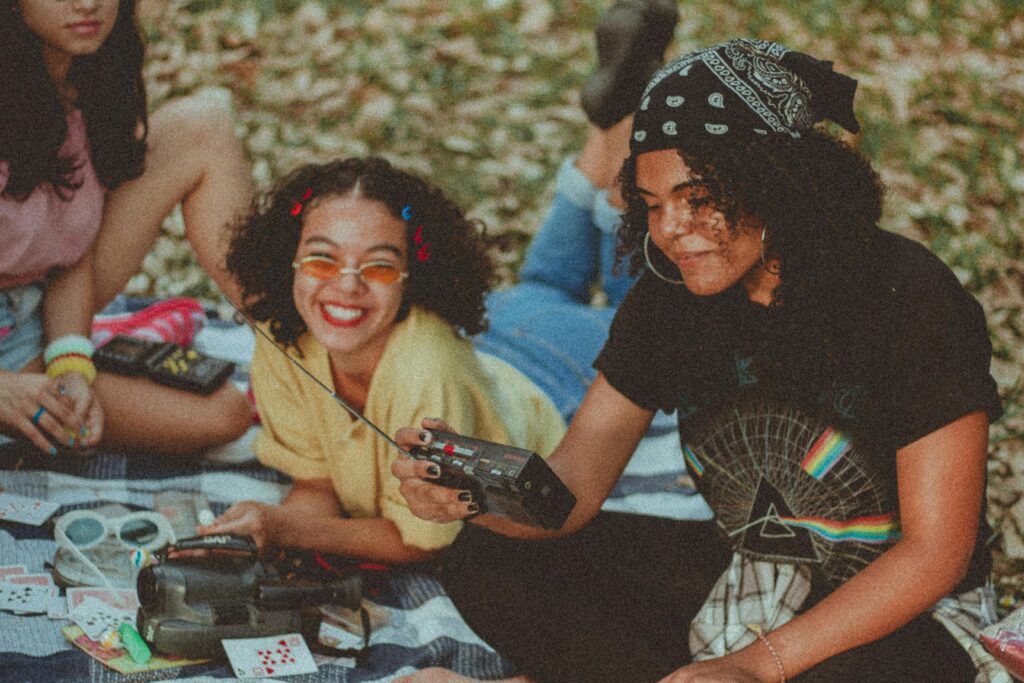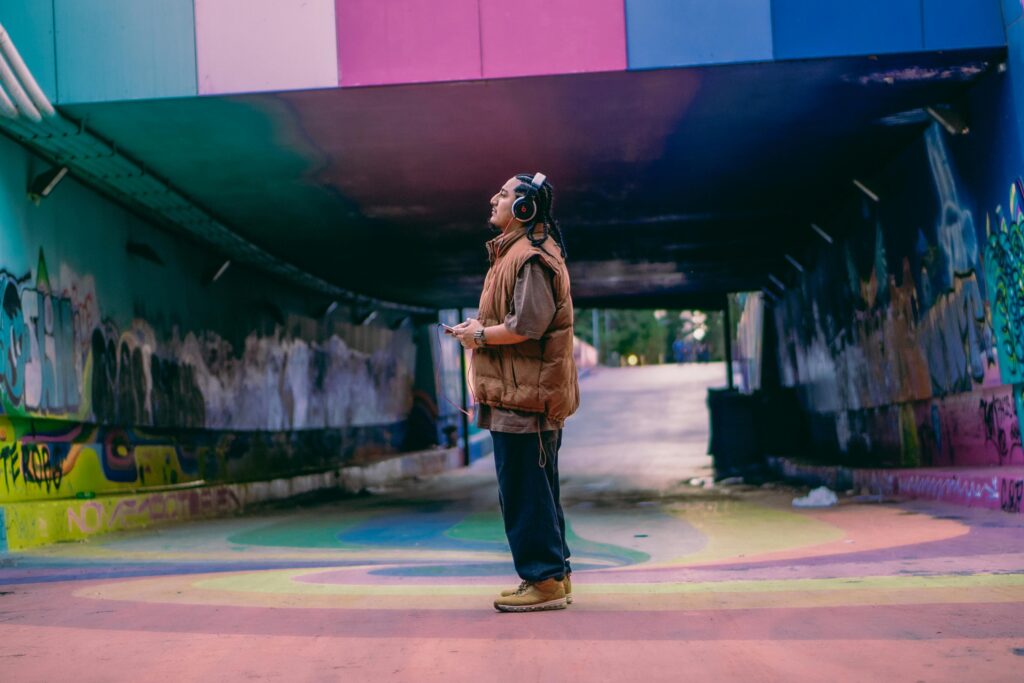How often do you think about the power of music to shape societal narratives and promote understanding?
If you take a moment to reflect, you might be surprised at how often music has played a role in challenging the status quo and bringing people together.
Deborah Jane Burke joined us on Episode 40 of Unlocking the Club to discuss her experience using hip-hop as a tool for racial reconciliation and fostering dialogue across communities.
Deborah has dedicated her life to creating spaces where the arts can be a catalyst for conversation and change.
Together, we unpacked what it means to use music as a medium for healing and connection in a society that often struggles to address its own divisions.
Hip-Hop as a Bridge for Understanding

Today, Deborah is a community leader who uses hip-hop to inspire discussions on race and unity. She has facilitated countless workshops and events, utilizing music as a common ground where diverse voices can be heard and respected.
This path was not something she had planned from the start, but it has become her passion and purpose.
For Deborah, hip-hop is not just a genre—it’s a cultural movement that tells the stories of those who have been marginalized.
It’s a way to challenge stereotypes, advocate for social justice, and connect people from all walks of life.
Deborah didn’t set out with a specific agenda to use hip-hop in this way, but she was open to where the journey took her. Here are some of her key strategies for leveraging the power of music in her work:
- Create spaces for dialogue: Deborah believes that the first step to reconciliation is creating safe spaces where people can have honest conversations about race, identity, and community. Music serves as a powerful entry point into these discussions.
- Meet people where they are: Deborah often uses popular hip-hop tracks to engage young people in her workshops, knowing that the music they love can open the door to deeper conversations about their experiences and aspirations.
- Use art as a form of activism: Whether through organizing community events, collaborating with artists, or simply creating platforms for marginalized voices, Deborah’s work is about using art to advocate for change.
There are many ways to use creative expression as a tool for social change. By being open to new approaches, we can find powerful ways to connect and inspire.
Building Bridges with Music

We all have different entry points into the conversation around race and reconciliation. For Deborah, hip-hop is a language that speaks to diverse communities and creates a shared experience.
As she moved deeper into her work, she felt the pressure to use this platform to address the systemic inequalities that exist in our society.
Just one example she gave is her ongoing efforts to use hip-hop in educational settings to discuss difficult topics like racism and identity. As a woman of color in these spaces, she is often seen as a representative voice.
But like many leaders, she wants her work to be more than just symbolic. She’s interested in real, transformative change.
So Deborah has learned to use her platform thoughtfully, balancing her passion for the arts with her commitment to making a tangible impact. It means being selective about the projects she takes on and the messages she promotes.
Here are some of the ways Deborah uses hip-hop as a bridge for reconciliation:
- Facilitate honest conversations: Music is a universal language that can make difficult topics more approachable. Deborah uses hip-hop as a way to engage people who might otherwise be hesitant to talk about race and identity.
- Focus on community building: Whether through local events or national campaigns, Deborah’s work is all about creating community spaces where people feel safe to express themselves and connect with others.
- Challenge the status quo: By using hip-hop to address issues of race and justice, Deborah is challenging the dominant narratives and advocating for a more inclusive society.
Creating spaces where people feel heard and understood is not easy. It’s something we all have to learn. Deborah reflected on how it becomes easier with time and practice, but it’s something we can all start doing now—by being open, listening deeply, and using our own platforms to create change.
Navigating Identity and Impact

Deborah spoke a lot about the mentors who influenced her during our conversation. These individuals, who guided and supported her work, have been critical in shaping her approach to hip-hop and activism.
One of her mentors taught her the importance of using her platform not just for her own voice but for amplifying the voices of others. It’s about more than just being seen or heard—it’s about creating impact.
And that’s why mentorship and community support matter.
It’s why having a diverse set of voices in leadership positions matters.
Because no matter how passionate we are, it’s difficult to create lasting change alone. We need people around us who believe in our vision and are willing to support our journey.
When we have people who understand our experiences and are willing to advocate for us, we learn what it means to truly step into our power. To live in our purpose and use our platforms for good. And to navigate the complex world of activism and advocacy in a way that honors our values and our communities.
True mentorship and community support are the ways we’ll start seeing more diverse leaders using the arts as a tool for social change. Because until that happens, we’re left navigating this work together, building bridges where we can.
As Deborah reflected back on her career, she acknowledged the importance of having mentors who understood her vision and were willing to invest in her success. And we all need mentors in our lives!
Both mentorship and community support opened opportunities for Deborah that she couldn’t have created on her own. And it’s given her the space to grow and develop as a leader without carrying the pressure to conform to others’ expectations.
There are practical ways a mentor can help you:
- Advocate for your work and your vision.
- Connect you with like-minded individuals and networks.
- Provide guidance and support as you navigate your journey.
- Offer feedback and encouragement as you develop your own voice and platform.
Ultimately, mentorship and community are about relationships. And relationships are at the heart of Deborah’s work. If you’re open to building connections and supporting others, you can’t predict the kind of impact you might have.
Being open to life, love, learning, and everything else is the way to create the change you want to see in the world! Deborah is living proof of it.
Listen in on Episode 40 of Unlocking the Club podcast to hear more from Deborah during our enlightening conversation. You can also keep up with her on social media and learn more about her work in hip-hop and racial reconciliation.
